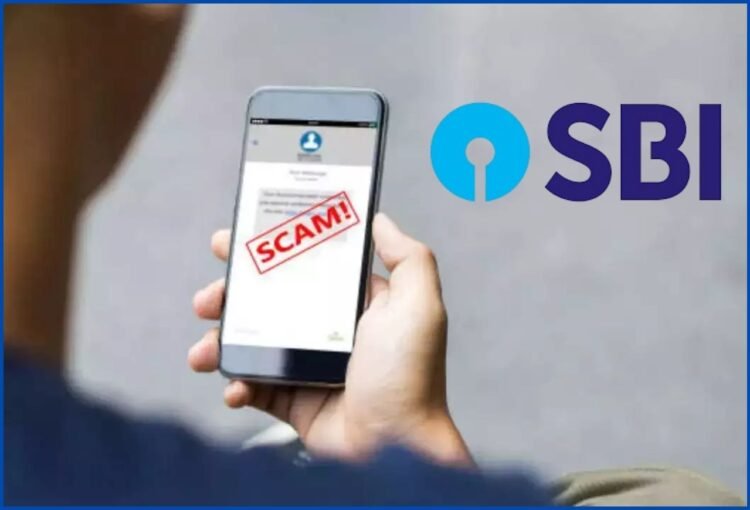NEW DELHI (India CSR): The State Bank of India (SBI) has raised an alarm about a sophisticated scam targeting its customers. Fraudsters are impersonating officials from the Central Bureau of Investigation (CBI) or the Income Tax Department to extort money by threatening legal action. This detailed scheme involves multiple steps aimed at deceiving individuals into sharing sensitive information and making payments. SBI has urged its customers to remain alert and informed to avoid falling victim to such scams.
How the 10 Step Fraud Scheme Works
Step 1: Identifying the Target
Scammers identify potential victims through personal information obtained from public databases, data breaches, or property listings.
Step 2: Establishing Contact
Fraudsters initiate contact through voice or video calls, often using messenger apps, to appear legitimate.
Step 3: Sharing Personal Information
To gain trust, the imposters share personal details such as KYC numbers, property addresses, or financial information they have acquired unlawfully.
Step 4: Fabricating Authority
The imposters claim to be officials from CBI or the Income Tax Department and present themselves as conducting a serious investigation.
Step 5: Creating a Fake Narrative
Fraudsters fabricate a story, such as non-payment of taxes or legal violations, to instill fear in the victim.
Step 6: Threatening Legal Action
Scammers escalate pressure by using terms like “arrest,” “legal proceedings,” or “jail time,” creating panic and compliance.
Step 7: Showing Fake Evidence
To strengthen their claim, they showcase fake documents or simulate official interrogations to make the threat seem genuine.
Step 8: Extracting Sensitive Information
Victims are coerced into revealing sensitive data, such as Aadhaar numbers, bank account details, or passwords.
Step 9: Demanding Payments
The fraudsters demand immediate payments, disguised as fines or bribes, through multiple bank accounts, assuring refunds once the “inquiry” is completed.
Step 10: Covering Their Tracks
Using internet-based calling software (VoIP), scammers ensure they remain untraceable, making it difficult for victims to verify their authenticity.
Official Warnings and Expert Advice
SBI’s Warning to Customers
SBI has issued a public alert stating, “Fraudsters may pose as CBI or IT Dept officials and may threaten legal action or heavy fines to extort money from you. Beware of such frauds.”
Guidance from Authorities
Shiksha Goel, IPS, Director of Telangana Cyber Security Bureau, highlighted that genuine law enforcement agencies do not conduct investigations online or resolve issues via video calls. Victims are advised to ask fraudsters to meet them at a government office or police station to verify their claims.
Understanding Social Engineering Scams
A Growing Global Concern
According to financial crime expert Sheetal R Bhardwaj, this form of scam, often referred to as “phishing” or “social engineering,” is a global issue. The Federal Trade Commission (FTC) in the US reports billions of dollars lost annually to such frauds.
Verifying Authenticity
Bhardwaj advises victims to disconnect suspicious calls and redial the same number to test its legitimacy. Many fraudsters use VoIP services, which typically block incoming calls, revealing their fraudulent nature.
Tips to Avoid Falling Victim
- Verify Identity: Legitimate agencies will never ask for sensitive information over phone calls or messages.
- Beware of Threats: Genuine organizations do not use fear tactics or threaten immediate legal action.
- Secure Your Data: Never share personal or financial details with unverified callers.
- Enable Security Features: Activate two-factor authentication and use strong passwords for all accounts.
- Report Fraud: Notify your bank and law enforcement immediately if you suspect a scam.
You Learn
This new scam targeting SBI customers underlines the importance of vigilance and informed decision-making. By understanding the tactics used by fraudsters and following safety measures, customers can protect themselves from financial and personal losses. SBI’s timely warning serves as a crucial reminder to stay cautious and to verify any communication claiming to be from official authorities.
(India CSR)







